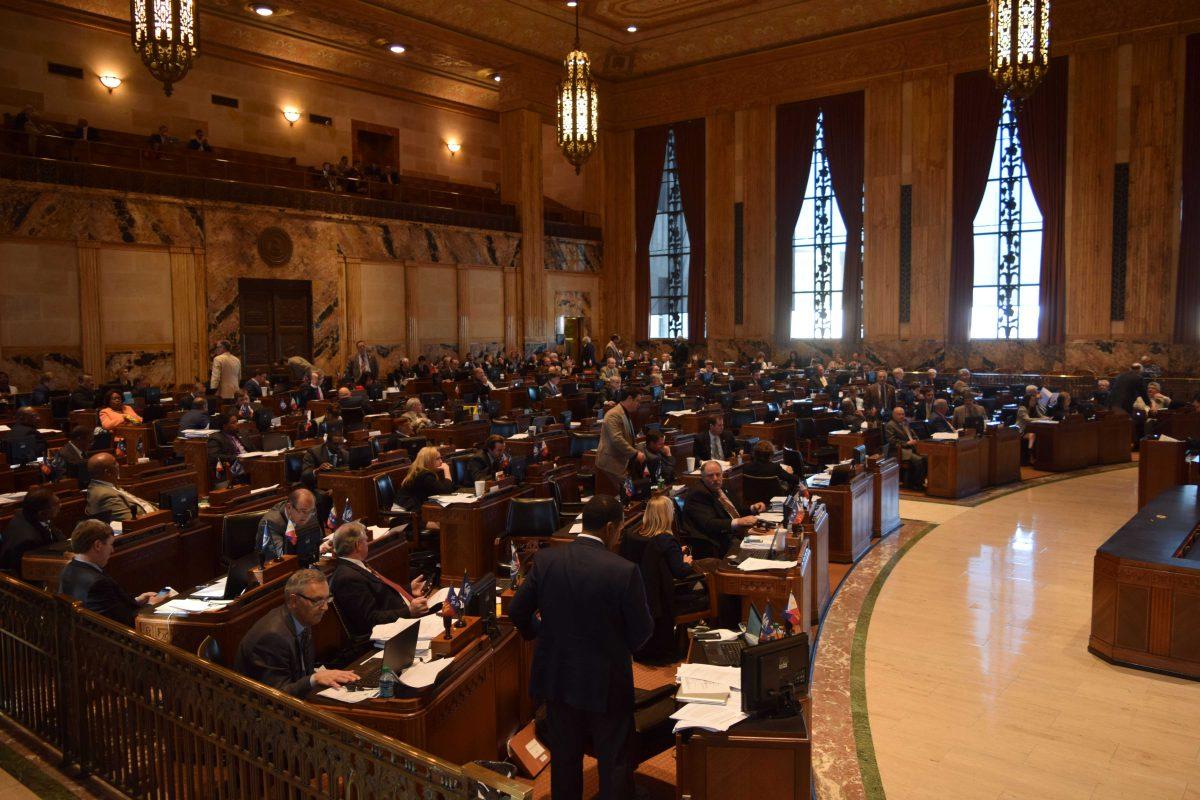The Senate Revenue and Fiscal Affairs Committee Sunday approved and sent to the full chamber for consideration a House-approved one-cent increase in the Louisiana’s sales tax, but not before replacing an 18-month sunset clause with a five-year window more in line with what Gov. John Bel Edwards was seeking.
The bill, raising the tax from 4 percent to 5 percent, is expected to raise close to a billion dollars in additional revenue annually. If passed by the Senate, the five-cent tax on most goods would take effect April in an effort to ease an estimated $940 million shortfall for the current fiscal year.
If the Senate approves it, as is expected, the measure, as amended, would need to go before a joint conference committee of both chambers before becoming law under the governor’s signature. The Legislature has until a week from Wednesday to come up with a funding formula of tax enhancements and spending cuts to erase the shortfall. On March 9, the special fiscal session ends.
Last week, the House of Representatives passed several proposed tax increases, including the sales tax bill sponsored by Rep. Katrina Jackson, D-Monroe, in tandem with $101 million in spending reductions outside of about $60 million in cuts recommended by the governor. But Republicans slapped on an amendment that would end the one-penny increase in October 2017.
Revenue and Fiscal Affairs Committee chairman Sen. J.P. Morrell, D-New Orleans, voiced frustration with his colleagues in the lower chamber over that restriction.
“Because (the House has not passed) all of the measures that were initially introduced, our ability to be flexible on the bills we do have is severely restricted,” he told colleagues Sunday.
Morrell warned that such limited flexibility —exacerbated by the immediate pressure of the budget shortfall —could leave his committee with no choice but to hurt some businesses and industries with higher taxes, despite “legitimate concerns.”
Edwards, a Democrat and former state representative, has made no secret of his frustration with the Republican-controlled House, saying Friday it has not passed the combination of spending cuts and tax increases needed to address the shortfall for the current fiscal year, ending June 30.
Nevertheless, a key component of the governor’s plan — the so-called “clean penny,” meaning there are few exemptions — is moving rapidly through the Legislature. The full Senate will vote on it Monday or Tuesday.









